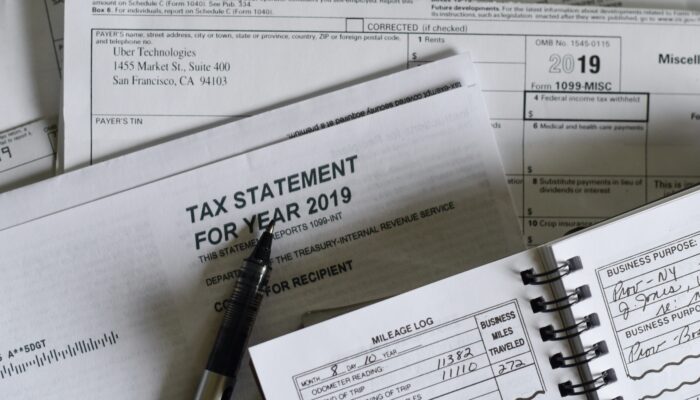US CITIZENSHIP RENUNCIATION AND ITS TAX CONSEQUENCES

10.09.2020
US Citizenship Renunciation And Its Tax Consequences: US citizenship has been always considered as a privilege. The country created by immigrants always had one of the best opportunities for entrepreneurs around the world and was one of the most desirable destinations. But despite that, in the modern world of tight fiscal policies and tax transparency, an increasing amount of US citizens are deciding to relinquish their citizenship because of tax reasons.
Despite the highest citizen renunciation fee in the world, at $2,350, and possible tax consequences, every year around 7,000 US citizens decide to renounce their citizenship. This amount has been steadily increasing every year since 2010 when the Foreign Account Tax Compliance Act (FATCA) became law.
Under US law, all US citizens and legal permanent residents (green card holders) are subject to US federal income tax regardless of their location, residence, place of living and source of income. US legislation defines these people as US persons. All US persons have to file an annual US tax declaration even if they permanently live and have income in another country and do not receive any income from the US sources. Apart from the US, Eritrea is the only country in the world which imposes the same exterritorial tax liability for its citizens.
Most US persons who live and pay tax outside the US use a foreign tax credit. This means they pay usual tax in the country of their current residence and, in cases where the US tax rate for this income is higher, they have to pay the exceeded amount of the tax to the US government. In other words, they always have to pay tax at least at US federal rates. In the case where their current country of residence has higher tax than the US, they forfeit that amount of overpaid tax. However, the credit can be carried forward. Also, it is important that foreign tax credit cannot be used at all with the tax paid in certain sanctioned countries detailed in section 901(J) of US Internal Revenue Code and currently including Iran, North Korea, Sudan, Syria and, with some exceptions, Libya.
The Special US Expatriate Income Tax Regime
The special tax regime arises on a non-resident basis when an individual expatriates from the United States by surrendering their US citizenship or terminating US permanent resident status. When this is done for tax avoidance purposes, the special expatriate tax regime will also apply.
In order to be a US permanent resident for US expatriate tax purposes, a foreign individual should be a lawful US permanent resident (a US person) and hold that status (a green card) for 8 of the last 15 tax years.
The special tax regime, however, is not applicable to a foreign national who was a US tax resident under the substantial presence test (the 183-day test). The US residence end date for such nationals is determined by the normal tax residence rules. This is applicable to foreign students or overseas workers, who spend several years in the US as US student or work visa holders and who leave the country without obtaining a green card.
There are two exceptions in the current US legislation, allowing US citizens to be beyond the scope of the special regime:
1. When an individual becomes a US citizen and citizen of another country at birth and still has citizenship of another country, is currently tax resident in such a country, and has been a US resident for not more than 10 taxable years during the previous 15-taxable year period, or
2. When a US citizen relinquishes US citizenship before attaining the age of 18.5 and has been a US resident for not more than 10 taxable years prior to the relinquishment date.
Tax Avoidance Test
In order to determine the applicability of the special expatriate tax regime, US legislation has a special tax avoidance test. The test has three conditions and, if any on them is met, expatriation is deemed to have been conducted in order to avoid US tax and that individual is called ‘covered expatriate’.
The first condition is met when the net worth of an individual at the date of expatriation or termination of residency is equal or more than USD2m.
The second condition is met when the average US federal income tax liability for the last five tax years preceding the tax year of expatriation or residency termination is equal or more than USD165,000, for individuals expatriating in 2018. This means that in 2018, the average will be calculated for 2017-2013 tax years. The threshold is subject to increase each year according to the inflation and published annually.
The last condition is when an individual fails to certify full compliance with all US federal tax obligations for the five years preceding the date of expatriation or termination of residency. This last condition means that if an individual failed to disclose any non-US income or bank account to the US tax authority, mistakenly or deliberately, this automatically makes him ‘covered expatriate’. Additional sanctions are also applicable for such non-compliance.
The expatriate tax is imposed on ‘covered expatriates’ in a mark-to-market way in the following manner: if all the assets and property of the individual are sold at their fair market value one day before the day he surrenders its citizenship or terminates his permanent resident status, the relevant gain or loss is subject to US federal income tax on a non-resident basis. This gain constitutes the taxable amount and is taxed at a 30 per cent rate.
In cases when a US resident-owned any property before the date of becoming a US resident, such property cannot be valued at less than its fair market value on the date of becoming a US resident.
The taxable gain can be reduced by a tax-free allowance in the amount of USD699,000 for 2017 and USD711,000 for the 2018 tax year. This allowance is subject to change every year, according to the inflation rates.
It is important to note that US citizens and residents who receive any gifts or bequests from US expatriates or who meet the tax avoidance test are subject to tax on the value of such gifts or bequests at the higher estate or gift tax rate on the date that they were received. Some gifts and bequests are exempt from tax such as gifts to governmental organizations and charities. Gifts between US and non-US spouses also have annual tax exclusion of USD152,000 for 2018. Also, there is no tax on a gift if the value of a gift is within the US annual tax gift exclusion. The annual tax gift exclusion for 2018 is USD15,000.
Reed Amendment
The Reed Amendment was added to the US Immigration and Nationality Act in 1996 in order to deny re-entry to the US of former citizens who have officially renounced their citizenship and who are determined by the Attorney General to have renounced their citizenship for the purpose of avoiding taxation. The author of the amendment was Jack Reed, the Democratic Party senator from Rhode Island.
The amendment was mainly targeted at wealthy Americans who wanted to expatriate from the US, stop being US taxpayers, and then to visit the US occasionally at their leisure without paying any taxes. The burden of proving tax avoidance lies on the US government and is not connected at all with the IRS tax avoidance test described above.
If the Department of Homeland Security determines that renunciation is motivated by tax avoidance purposes, the individual will be found inadmissible to the United States under the Immigration and Nationality Act. The US government hasn’t issued any regulations on how this law should be implemented in practice. According to the Department of Homeland Security, this law has been used only twice since its enactment in 2002 and 2015, and only two former US citizens have been denied entry the US. Moreover, the latter case was overturned when a former US citizen’s lawyer submitted a legal brief to the US Customs and Border Protection.
Contact Igor if you have questions about US Citizenship Renunciation And Its Tax Consequences.








